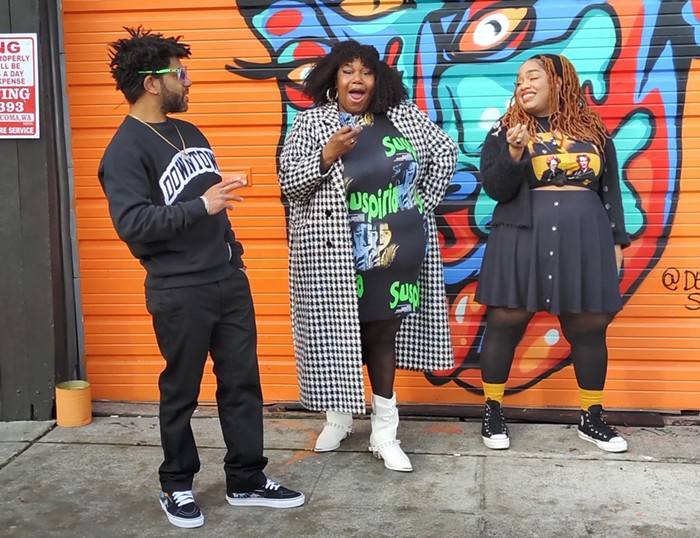US attorney general Jeff Sessions still hates weed and still wants to shut down the legal cannabis industry. In his latest attack, coming in the form of a letter to Governor Jay Inslee, Sessions writes that Washington State's legal weed industry is "incompletely regulated" and claims that pot has been allowed to fall into the hands of minors and leak out of our state.
He says our industry is in violation of the Cole Memo, a document written by the Obama administration that tells states that they can experiment with pot legalization provided they have a robustly regulated market. What's weird is, the Cole Memo is a nonbinding document that Sessions has the authority to tear up at any time. Why doesn't he just attack legal weed by saying everyone growing, selling, or consuming weed in Washington State is breaking federal law? He could file a federal lawsuit to shut down the state's pot market tomorrow. By saying that the state is violating the Cole Memo, even if he is only doing it to build a case against us, he is tacitly confirming that Washington can have legal pot if the state meets the Cole Memo's requirements.
He doesn't outright attack legal weed because the majority of the political forces in the country are firmly against him, and he knows it.
In May, Sessions asked Congress—in a private letter that was later leaked to the press—for permission to spend federal money on investigating and prosecuting the medical cannabis industry. Congress denied the request.
In July, a task force handpicked by Sessions to study enforcement of federal cannabis law recommended that the Department of Justice keep the Cole Memo in place. Many observers thought this task force was a sham commission created to feed Sessions a reason to attack legal weed, but even his handpicked committee couldn't give this to him. Sessions tried to keep the recommendation secret, but it was leaked to the press.
Now, faced with both the power to do what he wants and the understanding that he can't, he is trying to argue that legal weed is improperly regulated. His evidence? A report released in March of last year by a local branch of the Office of National Drug Control Policy (ONDCP) claiming that the industry is not sufficiently regulated, but that report is biased and outdated.
The ONDCP, an agency created during Ronald Reagan's war on drugs, has a legal obligation to oppose any efforts to legalize medical or recreational cannabis. It would be literally illegal for the ONDCP to argue that pot legalization is working, so they produced a scathing report filled with distorted facts and questionable logic. The study looked at less than the first year of legalization, a time when state regulations and the market were still developing.
Governor Inslee replied to Sessions's letter by saying the report was based on "incomplete and unreliable data." State attorney general Bob Ferguson went further, telling the Seattle Times, "Honestly, it's hard to take him seriously if he relies on such outdated information."
In his letter, Sessions also wrote, "In 2014 alone, 17 THC extraction labs exploded," inadvertently making another case for the existence of a legal market. As Inslee and Ferguson replied, "In three years of legalization, no licensed extraction business has exploded."
Sessions can try to use discredited data to shut our state's industry down, but he isn't likely to get very far. Congress is not supporting his war on pot. American voters, a majority of whom support legalization, are not supporting it. And the potential victims of Sessions's war on pot—the business owners in the legal market—are no longer the marginalized citizens attacked by Clinton, Nixon, Reagan, and both Bushes under their wars on drugs.
Attacking legal weed is attacking powerful millionaire executives with résumés that include huge corporations like Disney and Starbucks. It's attacking a legal workforce 10,000 strong in our state alone. It's attacking $400 million in tax revenue from a state budget that is already strained.
And Sessions, with his slow and quiet Southern drawl, is being outplayed.

















